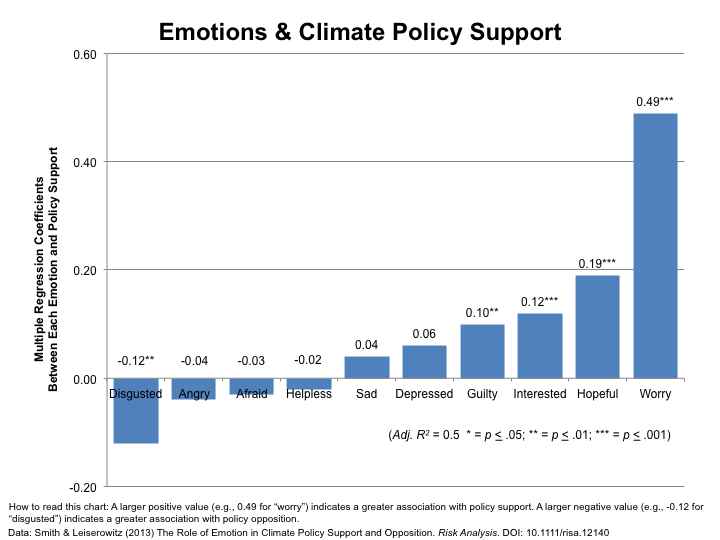Peer-Reviewed Article · Aug 4, 2014
The Role of Emotion in Global Warming Policy Support
Filed under: Policy & Politics
The journal Risk Analysis recently published our article “The Role of Emotion in Global Warming Policy Support and Opposition.” Prior research has found that affect (feelings of good or bad) and affective imagery (associations) strongly influence public support for global warming. This article extends this literature by exploring the separate influence of discrete emotions, like fear, anger, worry, guilt, etc.
Using a nationally representative survey in the United States, this study found that discrete emotions were stronger predictors of global warming policy support than cultural worldviews (egalitarianism, individualism), negative affect, top of mind associations, or socio-demographic variables, including political party and ideology. In fact, 50% of the variance in public support for global warming policies was explained by the emotion measures alone.
In particular, worry, interest, and hope were strongly associated with increased policy support. The results contribute to experiential theories of risk information processing and suggest that discrete emotions play a significant role in public support for climate change policy. Implications for climate change communication are also discussed.
If you would like a copy of the paper, please email us at climatechange@yale.edu, with the subject line “Emotion paper request.”
